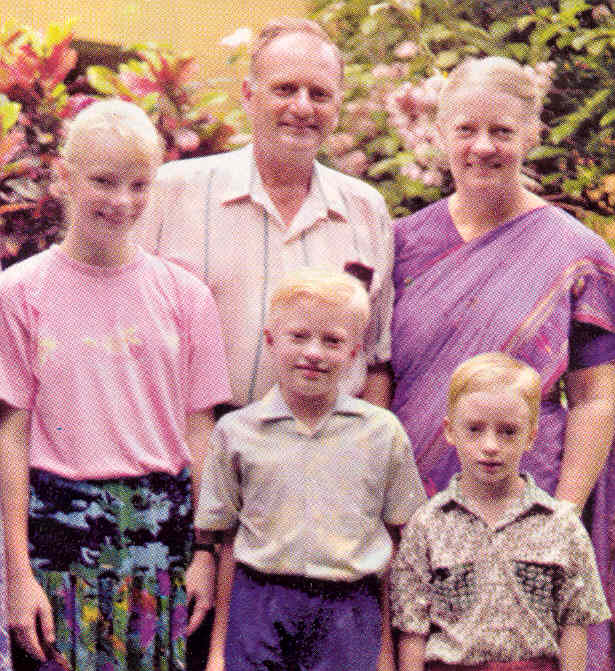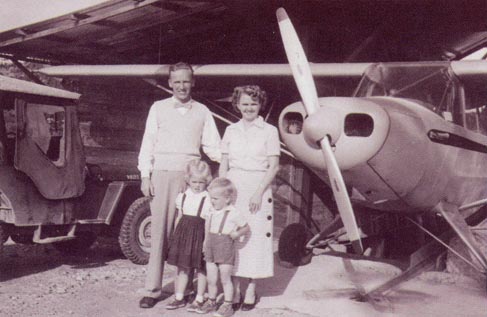 When Randy Alcorn told the story of Graham Staines holding his two sons—ages ten and six—in his arms as all three of them were burned to death for their faith in Christ, I was moved to tears. But as I analyzed my reaction further, I realized my feelings came from the fact that there were two small children involved. I could accept that a grown man had followed a call of God on his life and had made a decision to go to a foreign country that was hostile to Christians. I could even accept that he died for his faith, but I was troubled by the thought of the young boys dying.
When Randy Alcorn told the story of Graham Staines holding his two sons—ages ten and six—in his arms as all three of them were burned to death for their faith in Christ, I was moved to tears. But as I analyzed my reaction further, I realized my feelings came from the fact that there were two small children involved. I could accept that a grown man had followed a call of God on his life and had made a decision to go to a foreign country that was hostile to Christians. I could even accept that he died for his faith, but I was troubled by the thought of the young boys dying.
Later I heard another story that disturbed me. A family had been forced to dig their own grave before being executed. After they had finished, their captors were gracious enough to allow them some time to pray. At the end of the prayer their six-year-old son bolted from the group and ran away into the nearby woods. The father persuaded the guards not to chase him but rather to allow the father to call the son out of hiding. The son came back in tears, and the family was killed.
Why do the stories of children dying for their faith bother me so much? It’s because, as the children of missionaries, they didn’t make the choice to go to that country. They didn’t choose to live as a part of the persecuted church. They haven’t had a chance to live. In other words, they’ve been deprived of “the right to life, liberty, and the pursuit of happiness.” My tears were over an American value! I was shocked to see how my worldview was so skewed by being American. There is great injustice in the death of martyrs, but when I was honest with myself, the greatest injustice in my mind was the violation of American values, not God’s values.
With this new understanding, I started to look at things a little differently. Truly my views were worldly minded. My mind drifted to all the things those boys would never know or do, but these thoughts were drowned out by the sense of awe that accompanies the realization that these children are in Heaven. As horrible as the crime was, as much as they were deprived of their freedom, they are now truly free—truly whole and at peace. What kid could ask for more?
How often do we allow ourselves to be motivated by American thinking? I’m trying now to see things from an eternal perspective. My own children are a gift from God, and He has ordained when and how they will die. Before this weekend I could never have imagined losing one of them. Now I feel encouraged that no matter what happens to my family, eternity means more than the amount of time we spend on this earth. If I lose my children or my spouse, I will rejoice in their salvation in a different way than I ever could have before.
 Another story that has moved me is that of Nate Saint. It probably touches me because he left behind a nine-year-old son when he died. When Nate Saint’s son asked if he would use his gun to defend himself against the natives if they attacked, he said, “No.” His reasoning was that he knew where he was going when he died and the natives did not. He was not willing to trade the life of someone who does not know the Father for his own! This is certainly not an American view, but it sums up the eternal view very well! His son had an understanding of eternal perspective as he saw his father live out these convictions.
Another story that has moved me is that of Nate Saint. It probably touches me because he left behind a nine-year-old son when he died. When Nate Saint’s son asked if he would use his gun to defend himself against the natives if they attacked, he said, “No.” His reasoning was that he knew where he was going when he died and the natives did not. He was not willing to trade the life of someone who does not know the Father for his own! This is certainly not an American view, but it sums up the eternal view very well! His son had an understanding of eternal perspective as he saw his father live out these convictions.
For now God has called our family to remain in America. He has not, however, called us to an American worldview, but rather a biblical one—an eternal perspective. We live in a great country, and I am proud of those who have defended it; but it is not eternal. May we see life the way God does, value people the way He does, and live the days we’ve been given for His glory and His glory alone.

